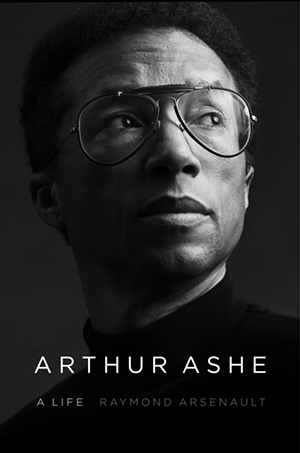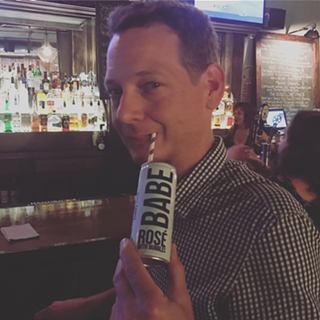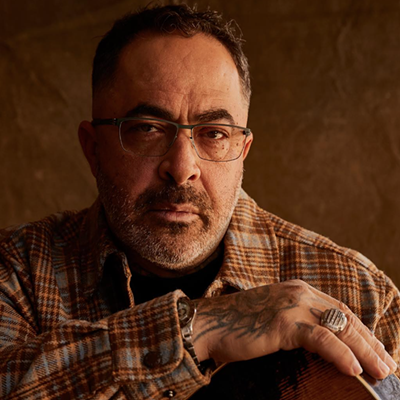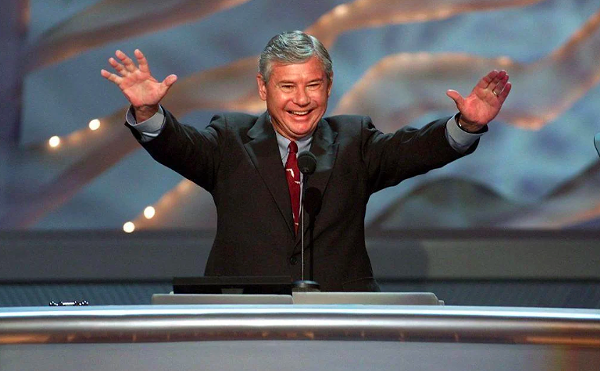Nine years is a long time to spend trying to get into the mind of a dead man — even an interesting and inspiring one.
But that’s about how long award-winning author and USF John Hope Franklin Professor of Southern History Raymond Arsenault took to write his new biography of tennis legend and humanitarian icon Arthur Ashe.
“He was a person of incredible depth, he was really one of the few professional athletes who was legitimately a public intellectual,” says Arsenault. “He was a writer, a bit of a philosopher, humanitarian, philanthropist. He only lived to be 49, but he packed a lot into 49 years.”
Known and lauded for two previous books on pivotal events in the fight for civil rights, Freedom Riders: 1961 and the Struggle for Racial Justice and The Sound of Freedom: Marian Anderson, the Lincoln Memorial and the Concert That Awakened America, Arsenault went into researching and writing what would become Arthur Ashe: A Life knowing there was much more to his subject than tennis. But he may not have known just how much more.
Over more than eight years and 150 interviews, Arsenault endeavored to know Ashe, who died in 1993 of AIDS after contracting HIV during a blood transfusion, as closely as possible. His upbringing and young life. His tennis triumphs and the effects they had on breaking the color barriers in amateur and professional sports. How he eventually used his success as a platform to advocate for social change, from anti-war activism and founding beneficial organizations like the National Junior Tennis League to his personal efforts to bring awareness and the end of apartheid in South Africa. His work as a columnist for the Washington Post. His life as a thinker and champion of human rights, and later work educating the public on HIV and AIDS.
“A book like this has to be accepted, you try to get inside the head of the person you’re writing about,” Arsenault says. “It’s technically impossible, but thinking about it is the last thing you think about before you go to sleep, an the first thing you think in the morning.
“I felt a deep sense of responsibility. And it was difficult, because I knew the story didn’t have a happy ending.”
The immersive process was daunting — not to mention exhausting, as Arsenault was teaching as well — but certain personally resonant factors made it even more difficult; he even walked away from the story for a time.
“My own parents had just died, and I was feeling a little older myself,” he says. “I asked myself if I really needed this, if I was personally ready.”
But Arsenault’s deep respect for Ashe comes through clearly as he talks about the man; listening, it’s difficult to imagine the author truly abandoning a subject so personally compelling:
“If you’re gonna spend nine years with anyone, he’s a good choice,” Arsenault says with a laugh. “He turned out to be more complicated, he was always Mr. Cool on the outside but he was a driven man, kind of turbulent inside. He very rarely lost his temper, raised his voice, took it all in stride, but that took a toll on him.”
Being a world-renowned black athelete during a period of such racial and cultural turbulence — Ashe was the first black player ever invited to join the U.S. Davis Cup team in 1963, and won both the United States Amateur Championships and the first U.S. Open in ‘68 — certainly couldn’t have been easy. In conversation, Arsenault posits that some of Ashe’s personal internal turmoil came from guilt over that personal success, and suggests that the 1968 assassinations of Martin Luther King, Jr. and Bobby Kennedy might have been what motivated Ashe to dedicate himself so fiercely to social issues.
“He turned toward activism and he never looked back,” he says. “He was absolutely committed to making the world a better place.”
Arsenault says that in writing the book, he “tried very hard not to turn [Ashe] into a saint, to give a realistic portrait,” but through his research and interviews, he realized he “couldn’t pretend he’s just like the rest of us.”
“I’ve rarely encountered in all of my years of writing someone quite like this, who was so determined to live up to his highest ideals,” he says.
It’s interesting that the first such comprehensive look at all of these sides of Ashe’s life is coming out now, at a time when athletes are once again using their positions to make bold statements about racial injustice. Interesting, and disheartening to think that as far as the world has come since the days of Arthur Ashe — who, fewer than five months prior to his death, was arrested in front of the White House for protesting the senior Bush administration’s immigration policies regarding Haiti — in some ways it hasn’t progressed much at all.
“If Arthur were still alive, he’d definitely take a knee today,” says Arsenault. “He wouldn’t raise his voice, but he’d be there on the line. And we’d need him.”
Arthur Ashe: A Life will be released on Aug. 21 via Simon & Schuster.


















